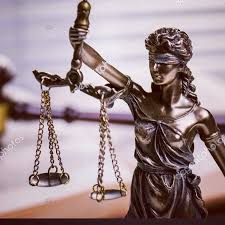Lawyer
Protecting the rights of vehicle owners during the war
War always brings chaos and destruction, which particularly affects civilians and their property. One of the important categories of property that may be affected during an armed conflict is vehicles. Protecting the rights of vehicle owners during war is an important aspect of maintaining law and order and ensuring justice. In this article, we will consider the legal, social and practical aspects of protecting the rights of vehicle owners during war.
Legal basis for the protection of vehicle owners' rights
International law
International humanitarian law provides for the protection of civilians and their property during armed conflicts. The Geneva Conventions and their additional protocols oblige parties to a conflict to refrain from attacking civilian objects, including vehicles that are not used for military purposes. Civilian property must be protected from misappropriation, destruction or damage.
National legislation
Most countries have legislation that regulates the protection of vehicle owners' rights. This may include criminal codes, civil defense laws, martial law laws, and other regulations that provide for liability for unlawful acts in relation to vehicles. Such legislation may include provisions for compensation for damages incurred by vehicle owners during wartime.
Threats to vehicles in time of war
Requisitioning
One of the main threats to vehicles during wartime is their requisition by the state for military use. Requisitioning may include the temporary or permanent seizure of vehicles from owners for use in military operations, transportation of military supplies, or evacuation of civilians. It is important that requisitioning is carried out in accordance with the law, with proper documentation and compensation to the owners.
Destruction or damage
During hostilities, vehicles can be destroyed or damaged as a result of shelling, air strikes or other military operations. This can result in significant financial losses for vehicle owners, especially if they were used for commercial purposes or as their primary means of transportation.
Theft and looting
In the chaos of war, the risk of theft and looting increases. Vehicles may be misappropriated, dismantled or sold on the black market. Vehicle owners may lose their property without the possibility of return or compensation.
Protection of the rights of vehicle owners
State measures
States have an important role to play in protecting the rights of vehicle owners in time of war. This includes:
- Legal regulation: Developing and implementing legislation that provides for the protection of vehicle owners' rights, liability for illegal acts, and mechanisms for compensation.
- Law enforcement: Maintaining law and order and protecting the civilian population, including vehicle security, theft and looting prevention.
- Reparations: Establishment of funds or programs to compensate vehicle owners who have suffered damage as a result of hostilities or confiscation.
International assistance.
International organizations, such as the UN, the International Committee of the Red Cross, can provide technical and financial assistance to protect the rights of vehicle owners. This may include:
- Monitoring the situation: Monitoring the observance of human rights and the protection of civilian property during armed conflicts.
- Humanitarian assistance: Providing humanitarian assistance, including vehicles for evacuating the population and delivering humanitarian goods.
- Legal aid: Providing legal assistance to affected vehicle owners, including assistance in applying for compensation and protecting their rights.
Self-defense of owners.
Vehicle owners can also take steps to protect their property. This may include:
- Insurance: Taking out insurance policies that cover the risks of destruction, damage, or theft of vehicles during wartime.
- Securitymeasures: Installing security systems on vehicles, such as alarms, GPS trackers, locks, and other theft protection.
- Information awareness: Raising awareness of the risks and ways to protect vehicles during wartime, including recommendations from law enforcement and experts.
Challenges and prospects
Identification and assessment of damage
One of the main challenges in protecting the rights of vehicle owners is the determination and assessment of damages. War conditions make it difficult to document damages, collect evidence, and conduct examinations. Effective mechanisms need to be put in place to assess damages and ensure fair compensation.
Political and economic factors
Political and economic factors may affect the ability to protect the rights of vehicle owners. Political instability, economic crisis, and limited budgetary resources can make it difficult to implement compensation and enforcement programs. It is important to ensure political will and international support to address these issues.
Reconstruction after the war
After the end of hostilities, efforts should be focused on rebuilding the country, including restoring transportation infrastructure and vehicle owners' property. This may include:
- Reconstruction of roads and bridges: Restoring transportation infrastructure that was damaged or destroyed during the war.
- Providing financial assistance: Providing financial assistance and soft loans for the restoration of vehicles and the purchase of new property.
- Insurance market development: Supporting the development of the insurance market to ensure the availability of insurance services for vehicle owners.
Conclusion.
Protecting the rights of vehicle owners during wartime is an important task for the state, the international community and the owners themselves. It is necessary to implement effective legal mechanisms, ensure law and order, and provide financial and technical assistance to compensate for losses and restore property. Only a comprehensive approach and close cooperation between all stakeholders will ensure the protection of vehicle owners' rights in the difficult conditions of armed conflict.
In any legal situation, it is important to conduct a comprehensive legal analysis of the situation in order to obtain a clear understanding of its aspects and possible solutions; the legal conclusion on the situation should be based on a detailed study of the facts and application of the relevant legal provisions. To achieve the best results, it may be necessary to write a lawyer's request, writing a lawyer request will help to obtain the necessary information for further analysis.
Or, an analysis of the situation by a lawyer or attorney is a key step in formulating a legal strategy. Also, a legal analysis of the situation includes both a lawyer's opinion and an attorney's opinion, which provides a comprehensive approach to solving a legal problem. A written legal consultation or written legal advice helps the client to understand the legal aspects and possible consequences of various options.
In today's environment, legal advice online and legal consultation online are becoming especially relevant, as they provide access to legal assistance regardless of the client's location. And online consultation of a lawyer and written consultation of a lawyer allow you to quickly get the necessary information and support in legal matters.
Thus, a legal analysis of the situation by professional lawyers and attorneys is the key to a successful solution to any legal problem. A legal opinion and timely legal assistance help to protect the rights and interests of the client, ensuring effective resolution of complex legal issues. Contact the legal marketplace "CONSULTANT"! A lawyer is always there for you!




































